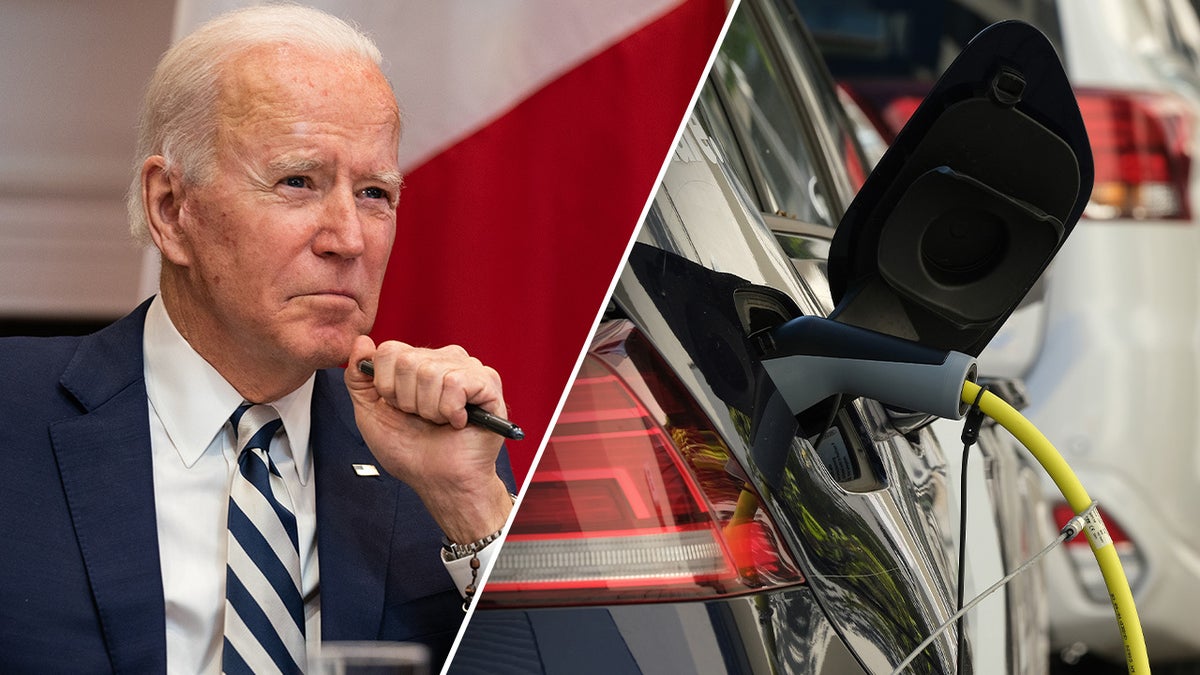EV Mandate Opposition: Car Dealers Renew Their Resistance

Table of Contents
Economic Concerns Fueling Dealer Opposition
One of the primary drivers of dealer opposition to EV mandates is the significant economic burden associated with the transition. The shift to selling and servicing EVs requires substantial upfront investments and presents challenges to established business models.
- High upfront investment in EV infrastructure: Dealerships need to invest in costly charging stations, specialized EV repair tools, and employee training, creating a significant financial strain. The initial outlay can be prohibitive, particularly for smaller dealerships with limited capital.
- Reduced profit margins on EVs compared to gasoline vehicles: Currently, the profit margins on EV sales are often lower than on gasoline-powered vehicles. This is due to several factors, including lower service revenue and the competitive pricing of EVs in the market.
- Uncertainty surrounding consumer demand and government incentives: The long-term success of EV sales remains uncertain, and fluctuating government incentives add to the economic risk for dealerships. This uncertainty makes it difficult for dealers to justify significant investments in EV infrastructure.
- Potential for stranded assets: Dealerships with substantial investments in parts and tools for gasoline vehicles face the risk of these assets becoming obsolete as the market shifts to EVs. This represents a substantial financial loss.
Reports suggest that the average cost of equipping a dealership for EV service can range from $50,000 to well over $1 million, depending on size and location. Coupled with reduced profit margins, this represents a significant financial risk that many dealerships are hesitant to undertake without sufficient government support.
Training and Workforce Challenges
The transition to EVs also presents significant training and workforce challenges for dealerships. Mechanics and sales staff need specialized skills and knowledge to handle the complexities of EV technology.
- Lack of readily available EV training programs: The automotive industry is facing a skills gap in EV maintenance and repair. A shortage of comprehensive and affordable training programs hampers the ability of dealerships to upskill their workforce effectively.
- Cost of training and certification for employees: The cost of training employees on EV technology is substantial, adding another layer of economic pressure on dealerships. The return on investment in training is uncertain given the current market dynamics.
- Need for government support and incentives for training initiatives: To address this skills gap, government support and incentives for EV-related training programs are critical. This would help ensure dealerships have access to the necessary resources to train their workforce effectively.
This skills gap, if not addressed promptly, could lead to significant workforce shortages in the EV sector, hindering the successful rollout of EV mandates.
Consumer Concerns and Market Readiness
Despite the growing awareness of the benefits of electric vehicles, consumer adoption faces several hurdles. These concerns directly impact dealer confidence in the long-term viability of EV sales.
- Insufficient public charging infrastructure: The lack of widespread and reliable public charging infrastructure, especially in rural areas, creates range anxiety among potential EV buyers. This is a significant barrier to widespread adoption.
- High initial cost of EVs: The higher upfront cost of EVs compared to gasoline vehicles remains a major deterrent for many consumers, particularly those on lower incomes.
- Concerns about battery lifespan and replacement costs: Concerns about battery degradation and the high cost of battery replacements also affect consumer confidence in EVs. These concerns require clear and transparent communication from manufacturers and dealers.
- Lack of consumer awareness and education about EV technology: Many consumers lack a thorough understanding of EV technology, including charging practices, maintenance needs, and overall benefits. Increased consumer education is crucial to drive adoption.
Current EV adoption rates, while increasing, remain significantly lower than many government projections. Consumer surveys consistently highlight the factors mentioned above as significant barriers to purchase.
The Role of Government Incentives and Regulations
Government policies play a critical role in shaping dealer resistance to EV mandates. The effectiveness (or lack thereof) of current incentives, the speed and stringency of mandates, and the overall approach to policy implementation heavily influence dealer attitudes. Concerns exist about mandates being implemented too quickly without adequate support for dealerships to adapt. A more collaborative approach, involving direct dialogue with dealerships and addressing their concerns, could lead to greater acceptance and smoother implementation of EV mandates.
Alternative Solutions and Compromise
Finding a balance between promoting the transition to electric vehicles and addressing dealer concerns is essential for a successful transition. A collaborative approach involving phased implementation, increased government support, and focused consumer education can create a more favorable environment.
- Phased implementation of EV mandates: A gradual rollout of EV mandates, allowing dealerships time to adapt to the changes, can reduce the economic burden and increase the likelihood of successful implementation.
- Increased government support for dealer infrastructure upgrades and training: Government grants and loan programs can help dealerships offset the high costs of investing in EV infrastructure and training.
- Incentives for consumers to purchase EVs: Robust consumer incentives can increase EV demand, making the transition more economically viable for dealerships.
- Focus on improving the charging infrastructure: Significant investment in public charging infrastructure is crucial for addressing consumer range anxiety and accelerating EV adoption.
Conclusion: Navigating the Future of EV Sales and Dealer Resistance
The resistance to EV mandates from car dealers stems from a complex interplay of economic, training, and consumer-related challenges. Addressing these concerns requires a collaborative approach that balances the urgent need for a sustainable transportation future with the practical realities faced by dealerships. By fostering open dialogue, providing targeted support, and implementing phased approaches, policymakers can create a more favorable environment for the transition to electric vehicles. We urge readers to engage in this critical discussion, contact their elected officials, and support industry initiatives focused on compromise and collaboration to ensure a smooth and successful transition to a sustainable transportation future in the face of EV mandate opposition.

Featured Posts
-
 Bof As Reassuring View Why Stretched Stock Market Valuations Shouldnt Worry Investors
Apr 22, 2025
Bof As Reassuring View Why Stretched Stock Market Valuations Shouldnt Worry Investors
Apr 22, 2025 -
 Trumps Economic Agenda Winners And Losers
Apr 22, 2025
Trumps Economic Agenda Winners And Losers
Apr 22, 2025 -
 Post Roe America How Over The Counter Birth Control Reshapes Reproductive Healthcare
Apr 22, 2025
Post Roe America How Over The Counter Birth Control Reshapes Reproductive Healthcare
Apr 22, 2025 -
 Identifying The Countrys Top New Business Opportunities A Geographic Overview
Apr 22, 2025
Identifying The Countrys Top New Business Opportunities A Geographic Overview
Apr 22, 2025 -
 Kyiv Faces Trumps Ukraine Peace Plan A Ticking Clock
Apr 22, 2025
Kyiv Faces Trumps Ukraine Peace Plan A Ticking Clock
Apr 22, 2025
